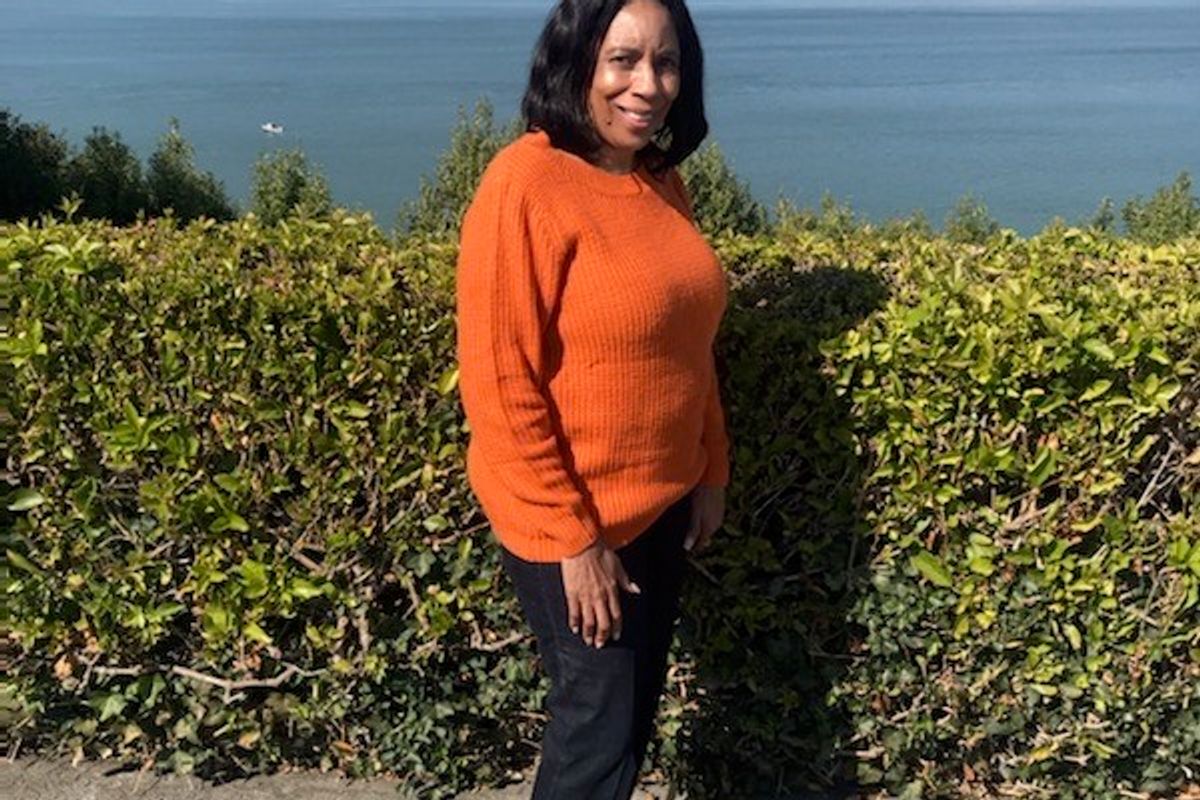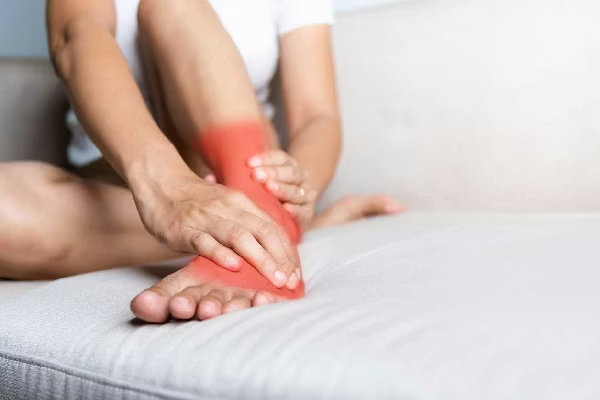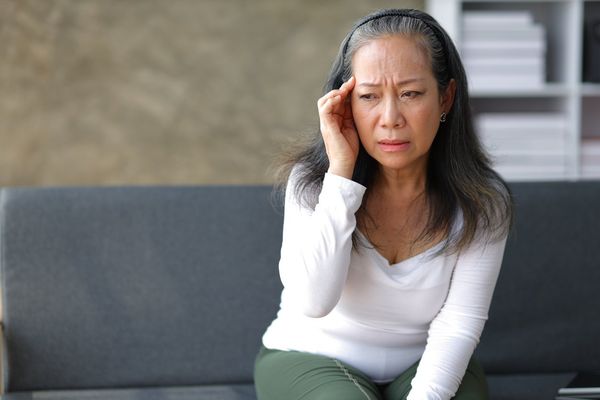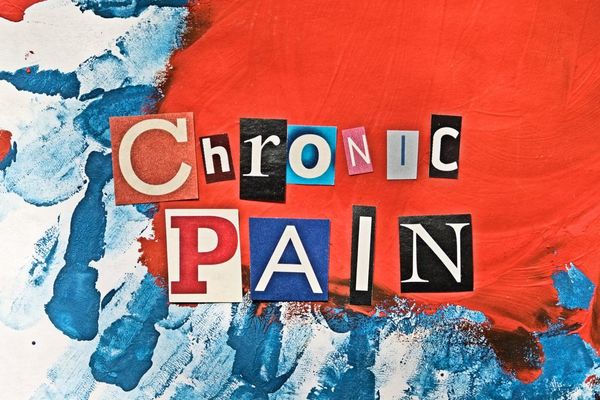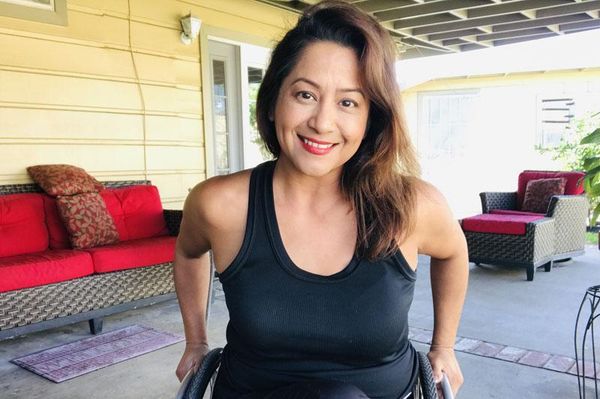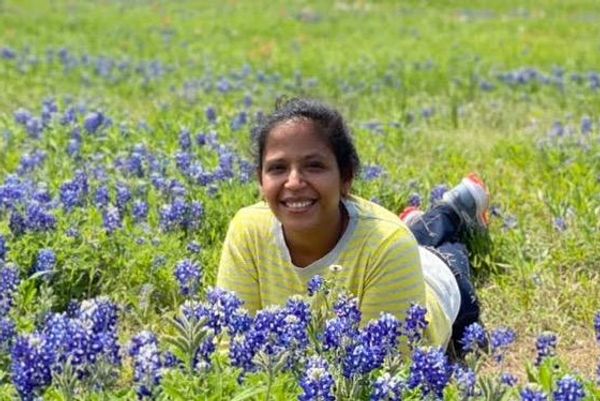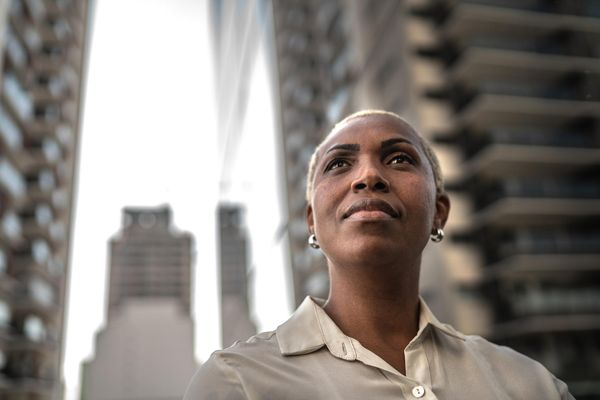As told to Diana Whitney
My chronic pain journey began suddenly on October 27, 1998. I was at the hospital where I worked as a substance abuse counselor, walking into the lounge before teaching my 6 p.m. class. Out of nowhere, I slipped and fell on an oily substance on the floor. When my body hit, it twisted in two directions. I had nerve damage and bulging discs, and that was only the beginning of a new life defined by excruciating pain.
At first I believed my injuries would heal with time. I imagined I'd be back to normal, working as a licensed counselor. I'd been studying for three years to get my certification and was about to start earning a better salary. My son had just graduated college — a huge milestone for both of us. After being a single parent most of his life, I was going to get my time to explore. I was excited to travel, visit places I'd always dreamed of. I had trips planned to England to see my niece graduate from Oxford University and to New Orleans for a family reunion. Both had to be canceled due to my debilitating pain.
I didn’t want to take any pain medication and resolved to tough it out. I was raised to turn to God for help and look to religion to heal everything. For many people of color, there’s a stigma in asking for support. But after years of trying noninvasive treatments with no relief, I had an IDET procedure in 2002; a surgeon inserted a hot needle into my spine in an attempt to cauterize nerve endings in the disc wall. The procedure failed. Today, IDET is not recommended to treat chronic back pain.
I was exhausted and growing irritable with my patients and colleagues, and finally I had to stop working. I felt devastated by the loss of my professional life and identity. I had worked my whole life, starting at 10 years old when I became a babysitter and helped neighbors with small jobs.
I was still holding out hope that the pain might simply stop. Then my doctor sat me down. “Cathy,” he said gently, “your pain isn’t going to go away. The best you can do is find ways to manage it.” I sat there in his office in shock, struggling to accept my new reality.
At that point, I could only sleep 15 minutes at a time. My second marriage had ended because my husband couldn’t deal with my pain and resented my inability to do everything he could. After years of suffering, I started taking pain medication regularly. This gave me enough relief that I could start going to water therapy at the gym.
That water therapy class gave me my life back. At first my body felt so fragile I could only stand in the pool, but within a few weeks I was moving back and forth width-wise. It took me three years to go in the deep end, but I did it. The instructors were great because they’d had injuries too and understood what it meant to live with pain. Every Friday, I’d bring in old-school music and our class had fun together.
By 2007, I could sit at my computer for short periods, and I found the American Chronic Pain Association (ACPA) website. Their message spoke to me immediately, and I started a local ACPA Peer Support Group in Vallejo, California. I’ve learned so much from the ACPA tools, which are incredibly powerful. They taught me how to live again, to gain skills and to realize I’m not alone.
Our first ACPA assignment was “Acknowledging the Pain,” designed to help us get over the hurdle of acceptance. We had to name our pain, separate it from our identity the way you’d separate a misbehaving child from her negative behavior. I started feeling hopeful again, and our group continued meeting for years.
I discovered I had a passion for advocating for people who live with chronic pain, as well as educating others about the issues we face. Within a few years, I became the regional director for the Northern California Bay Area ACPA, coordinating group facilitators, promoting togetherness and ensuring we follow ACPA principles. I’ve traveled all over the country to events and conferences as a patient advocate.
I tell people I have four strikes against me in the health care system: I’m African American, I’m female, I’m low-income and I’m disabled from chronic pain. I want to raise awareness about racial disparities in health care and how they impact patients. African-Americans and other people of color don’t get the same treatment as everybody else. I always speak up about this issue on panels, but it took 11 years working with ACPA for my experience to be acknowledged and validated.
Today my pain has evolved beyond my spine. What they don’t tell you is that living for years with chronic pain eventually affects your entire body. I now have rheumatoid arthritis and osteoarthritis as well as fibromyalgia, which clouds your thinking and takes over your whole system. My gait has changed and I tend to fall and drop things. On bad days, I hurt from the top of my head to the bottom of my feet.
It’s a daily job just taking care of myself: mind, body and spirit.
But I keep a positive attitude and cherish the connections I’ve made as a patient advocate. I was part of an amazing project in New York where an artist worked with us to bring our personal pain stories to life, painting our bodies to visualize this invisible condition that is often misunderstood.
I still offer regular support to others via Zoom and phone calls, which continue to be rewarding. Before the pandemic, I was attending a mindful movement class. I can’t wait to get back.
Catherine Cartwright was born and raised in San Francisco. She was the regional director of the Northern California Bay Area ACPA for years and continues her work as a patient advocate. A devoted grandmother and great-grandmother, she loves big family gatherings, church, movies and old-school music.

